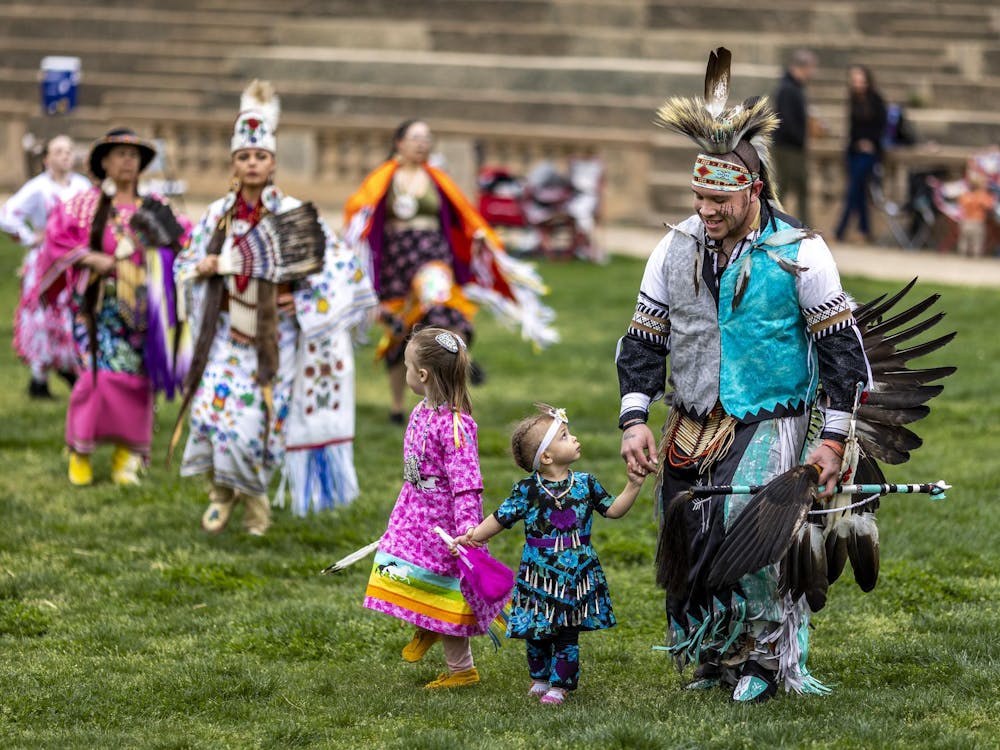As I sit in Lawn Room 15 and watch the 2018 NCAA Tournament unfold, I am again amazed — as I am every year — by March Madness. There are few things like it.
Every year, a field of 68 is effectively reduced to only one survivor — like the Hunger Games. But what’s really so amazing about the NCAA Tournament is the fact that you do not need to be a sports fan to enjoy it. Many of you reading this might not know the first thing about the best college basketball teams — with the exception of the Hoos — yet you still felt compelled to fill out a bracket. To me, this is what’s really special about March Madness every year.
So what is it that makes March Madness so unique? Is it the possibility of a Cinderella story? The gambling opportunity to make money in a bracket pool and own bragging rights for the next year? The inevitable viewing parties? Or perhaps most compellingly, having the chance to see the Hoos win it all? There are so many different appeals outside of being a pure sporting event that make the NCAA Tournament such an intriguing event every year.
One of the greatest aspects of the NCAA Tournament is the opportunity for lesser-known schools outside of the Power Five conferences to compete with the best teams — and best recruits — in the whole nation. For avid basketball fans, the tournament serves as a showcase for all the young and coming players before they move onto the next level in the NBA. But for the friends and families of those lesser-known schools, it’s all about making that one shot — that one unforgettable play — that will result in an upset that lives in infamy.
The NCAA Tournament is relentless. There are games non-stop almost every single day and upsets not even the experts saw coming. Unfortunately, our Hoos were on the wrong side of one of those upsets this year. Take a step back from the agony of that defeat and appreciate the unpredictability of this tournament. How else would we all be so drawn to the tournament every year?
As a society, we love the underdog. The Underdog Effect has been studied empirically dating back to Indiana University in 1992. For games in which we do not hold personal stake, rooting on the underdog is only natural — if we’re right, we’re praised for calling it. If we’re wrong, well, it wasn’t supposed to happen anyway.
In the NCAA Tournament, the underdog seems to deliver time and time again. The underdog gives us a chance to tell our friends, “Dude, I picked that team in my bracket!” The underdog leads us to believe that everyone really does have an equal chance and the team with the most heart or most humility can win just as much as the team with the most talent. Simply put, picking the underdog feels really good and the cost of being wrong is negligible.
When it’s do or die, kill or be killed, the Underdog Effect seems to manifest itself and a less refined game of basketball can prevail — for example, the countless three-pointers UMBC chucked up and knocked down. The belief in the improbable being possible almost wills the improbable to happen. The possibility of a great upset gets everybody watching up on their feet, and the Underdog itself seems to feed off of it. UMBC is not the only example of an unbelievable upset so far in this year’s tournament — far from it.
But it is teams like UMBC and many others, the teams with the players you’ve never heard of but still find yourself rooting for — the players as a media-saturated culture we love to interview and put on our T.V. screens, or the schools we love to cherish during the month of March because nobody ever even heard of them before. It is these schools and these opportunities that drive the sports world insane when it comes to March Madness. Anything can happen to any team at any time, and there’s a certain magic that seems to be willed on by fans every year that makes the impossible so possible in the NCAA Tournament.
Countless games go to the wire and are decided at the buzzer. The unexpected becomes the expected consistently, what shouldn’t happen, does happen. College campuses across the nation go absolutely all out with the glimmer of hope that they can be this year’s team that defies the odds. On the other hand, it’s a desperate helplessness that pervades. A fear of being the next SportsCenter special or 30 for 30. So much more than just basketball goes into the tournament every year and it glues our eyes to TV screens and our butts to couches so we don’t miss whatever is going to happen next.
With that being said, it’s kind of amazing that over 70 million people fill out and bet on a bracket in arguably the most unpredictable tournament there could possibly be. After the first round of action, there were zero perfect brackets. Powerhouses get knocked out by nobodies, the so-called experts make countless predictions that never come to fruition. It’s almost inevitable that your bracket goes horribly off track.
Nonetheless, every year there are countless hours spent analyzing, debating and picking the field. Some people base their decisions on the teams mascots. Others base it on wit. There really wouldn’t be a March without the madness, and some of the madness is the mere fact that people think they know what what they're talking about when it comes to this tournament. But nobody does. So hopefully you went with your gut and hopefully it was enough — for me, it certainly wasn’t.
Finally, poor Virginia fans — myself included — I ask you to refrain from boycotting the tournament and to avoid shaming our teams players and cherished history. This Virginia team, albeit going down in epic fashion, simply became the victim of the unrelenting, utterly remorseless madness of March. Instead of dwelling on that pain of defeat, try to watch the rest of the tournament with a sheer appreciation for the sport’s magic rather than a means for betting or owning bragging rights. The NCAA Tournament is nothing concrete and there is really nothing quite like it. We are given proof of this reality year after year after year.





